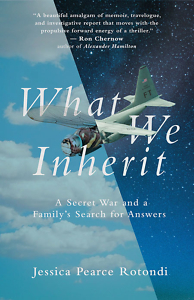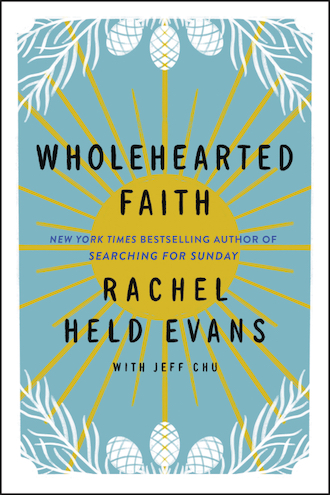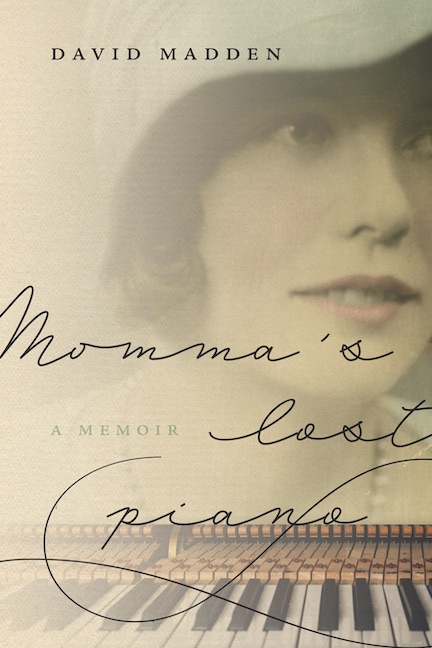An Anguished Quest
Jessica Pearce Rotondi explores her family’s grief in What We Inherit
Among our many wars, the Vietnam conflict stands out as a humiliation — the bad war, the one we don’t talk about, whose historical memory we repress. Instead of the Greatest Generation, we have hippie protestors and veterans with PTSD; instead of celebratory kisses in Times Square, we have refugees evacuating on helicopters; instead of plucky B-52 pilots, we have the butchers of My Lai. This is our collective understanding of a decades-long military engagement that squandered the lives of 58,000 Americans.

The journalist Jessica Pearce Rotondi was 8 years old before she heard her mother speak the name of her uncle, Jack Pearce, who vanished when his plane was shot down over Laos in March 1972. In her propulsive memoir, What We Inherit, Rotondi probes her family’s agonized search for truth across three generations, a story of shame dovetailed with denial.
Rotondi’s grandfather, Ed Pearce, served with high distinction in World War II. He was captured behind enemy lines and shipped off to the infamous Stalag 17-B prison. Released after Germany’s defeat in 1945, Ed married Rosemary and settled into a conventional life in Pennsylvania, raising four sons and a daughter, Linda, who became Rotondi’s mother.
Gregarious and something of a flirt, Jack, the Pearces’ oldest son, followed his father into the Air Force. After his first tour of duty, Jack came back changed: edgy and irritable, no longer the easygoing charmer. While on his second tour, he was flying a mission with 13 comrades when their AC-130 transport was struck by a missile and plummeted to the ground. Eyewitnesses on the ground claimed that at least nine soldiers survived, and an emergency distress signal was detected after impact, but the government failed to locate the wreckage or account for casualties. All the men were listed as missing in action.
Rosemary and Ed were convinced that Jack was still alive, held captive by the Communist régime. After the surrender of Saigon in 1975, they launched a high-stakes investigation, aided by Linda. Rotondi recreates the family’s harrowing trek through layers of cold, antagonistic bureaucracy, official statements meant to nudge the family away from futile hope. Ed in particular became obsessed, questioning each on-the-record announcement, frustrated with a government that wanted nothing more than to move on. Rotondi’s portrait of her grandparents is one of disbelief in the face of inconsolable grief.
 Ed and Rosemary refused to accept the military’s 1979 presumption of Jack’s death, even after the crash site was identified, bone fragments found, and Jack’s dog tags recovered. “There was a difference, Ed was discovering, between hearing that your son’s dog tags have been located and holding them in your hand,” Rotondi writes. “The reality of them against his skin — objects that once touched his son — moves him in a way that he doesn’t know how to admit. His wife is the Catholic one, but the tags feel like some kind of relic to him, as if a part of Jack still flowed through them. I feel the same way when I hold them now, the cold metal with Jack’s last name — my middle name — pressed into my palm.” Ed died without a concrete resolution. As Rosemary slipped into dementia in 2008, DNA sequencing confirmed a finger belonged to Jack, a year before Linda died of aggressive cancer at the age of 56.
Ed and Rosemary refused to accept the military’s 1979 presumption of Jack’s death, even after the crash site was identified, bone fragments found, and Jack’s dog tags recovered. “There was a difference, Ed was discovering, between hearing that your son’s dog tags have been located and holding them in your hand,” Rotondi writes. “The reality of them against his skin — objects that once touched his son — moves him in a way that he doesn’t know how to admit. His wife is the Catholic one, but the tags feel like some kind of relic to him, as if a part of Jack still flowed through them. I feel the same way when I hold them now, the cold metal with Jack’s last name — my middle name — pressed into my palm.” Ed died without a concrete resolution. As Rosemary slipped into dementia in 2008, DNA sequencing confirmed a finger belonged to Jack, a year before Linda died of aggressive cancer at the age of 56.
The Pearce family’s tragedy then passed on to Jessica, who left her Brooklyn apartment with her friend Liz to travel to the other side of the globe, retracing her uncle’s final journey. Rotondi shifts back and forth in time, braiding her grandfather’s war with her uncle’s, her mother’s emotional odyssey with her own. She and Liz immerse themselves in the lush landscape and the embrace of the Lao people, marveling at Buddhist rituals and grappling with the scars of our imperialist debacle. Rotondi’s storytelling builds deftly to a catharsis when she negotiates a pilgrimage to the crater where her uncle’s plane disintegrated. She alone brings closure to her family’s anguished quest.
What We Inherit charts one writer’s struggles with the secrets of inheritance, the myths that define us through those we love. Rotondi’s début is poised and precise as it chronicles, layer by layer, the weight of a history that most would soon forget.

Hamilton Cain is the author of This Boy’s Faith: Notes from a Southern Baptist Upbringing and a frequent reviewer for O, the Oprah Magazine; the Minneapolis Star Tribune; and The Barnes & Noble Review. A native of Chattanooga, he lives in Brooklyn, New York.


